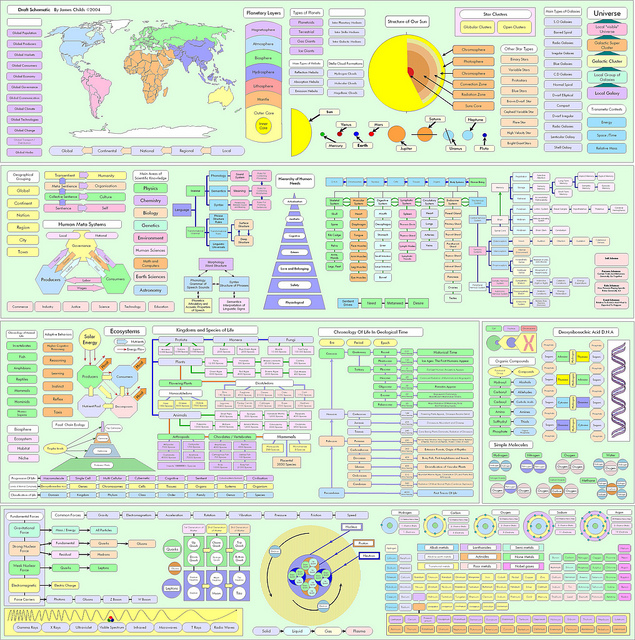VUCA: What can the American military teach us about business?
October 31, 2015
Don’t worry, this isn’t another one of those articles suggesting that you need the camaraderie and grit of the marines as you lead your team through another gruelling week servicing the nation’s photocopiers or whatever it is you do for a living. This military lesson isn’t really about people at all. It’s about a way of thinking about situations. Developed by the US military, it’s called VUCA, which stands for:
• Volatility
• Uncertainty
• Complexity
• Ambiguity
It’s easy to see how this would be useful to military strategists looking at complex, confusing and unstable situations such as in the Middle East. In business, too, the idea of VUCA is gaining traction. We live in a world that is fast moving, globalised and complex; we never know where the next disruptive technology might spring from.
What’s this got to do with psychology?
If it’s about situations, not people, why is a psychologist writing about it? Well some people are better equipped to handle VUCA – and different aspects of VUCA – than others. Intellectual ability, personality and emotional resilience can all affect a person’s capacity to handle situations that are high in VUCA. Sometimes people find themselves facing situations which are volatile and uncertain and complex and ambiguous but often business situations have only some of aspects of VUCA, so it’s worth looking at them individually.
Volatility
Volatility is about rapid, unpredictable change and the obvious example is market price fluctuation. Commodity traders, foreign exchange dealers and stockbrokers all buy and sell things (or, in some cases, imaginary things – derivatives, anyone?) that can change rapidly in value. There are both risks and opportunities and the situation is fast moving but not necessarily complex. Regardless of what City boys might like us to believe, it generally doesn’t take the world’s finest minds to handle these situations. What it does take is someone who works at pace, can make very quick decisions and is comfortable with risk.
Commodity traders, foreign exchange dealers and stockbrokers all buy and sell things (or, in some cases, imaginary things – derivatives, anyone?) that can change rapidly in value. There are both risks and opportunities and the situation is fast moving but not necessarily complex. Regardless of what City boys might like us to believe, it generally doesn’t take the world’s finest minds to handle these situations. What it does take is someone who works at pace, can make very quick decisions and is comfortable with risk.
Uncertainty
An uncertain situation may not be fast moving at all. Let’s take an independent TV production company whose main customer is the BBC. The BBC’s charter is up for renewal next year and no one knows yet what impact that will have on the corporation and, consequently, its suppliers. The situation is not volatile – there is a timetable in place and it’s pretty clear when decisions will be made. This situation needs someone who can live with uncertainty over a fairly long time frame, which is mostly a personality issue; some people are much more comfortable with uncertainty than others. Emotional resilience also helps.
This is also a situation where it helps to have more insider intelligence, so someone who is well-connected, can pick up which way the wind’s blowing and plan options accordingly is likely to be more effective than someone who relies on formal communication and waits for the official line.
Complexity
A complex situation may be quite stable, it’s just difficult to get your head around it all. An example might be a company in the renewable energy sector operating in a wide range of countries, supplying everything from offshore windfarms to solar-powered fridges for storing vaccines. Contracts might come from governments, commercial organisations or NGOs.  There will be different regulatory environments and bidding processes in different countries. The sector is prone to political interference (just ask anyone caught out by the change in feed-in tariff for solar panels). Technology is developed over a long time and it’s not always clear which emerging technology is likely to be a winner. Making sense of all of this takes a fairly high level of intellectual capability. It needs someone who can handle the big picture and the detail, who can make sound decisions without either being overwhelmed by the volume and complexity of the information or oversimplifying and missing something vital.
There will be different regulatory environments and bidding processes in different countries. The sector is prone to political interference (just ask anyone caught out by the change in feed-in tariff for solar panels). Technology is developed over a long time and it’s not always clear which emerging technology is likely to be a winner. Making sense of all of this takes a fairly high level of intellectual capability. It needs someone who can handle the big picture and the detail, who can make sound decisions without either being overwhelmed by the volume and complexity of the information or oversimplifying and missing something vital.
Ambiguity
An ambiguous situation is one where you don’t know quite what you’re dealing with. It has elements of uncertainty but in an uncertain situation, you at least know what you’re uncertain about – you may not know the answer but you do know what the question is. In an ambiguous situation you are in the territory of Donald Rumsfeld’s famous ‘unknown unknowns’. You may not have the questions, let alone the answers. In business, ambiguous situations usually arise when something is being pioneered – moving into new and emerging markets or developing ground-breaking, disruptive technology. It can be very difficult to predict the outcome of decisions; unintended consequences are an occupational hazard.
Ambiguity is probably the toughest of the VUCA challenges. It takes someone with the intellectual firepower to make sense of the situation without a roadmap to follow, who doesn’t screen out ambiguity and reduce everything to simple black and white terms. But it also needs someone who is not ponderous in their decision making; someone who can try things out and quickly drop them if they don’t work. Someone who can hold their nerve over the long term and not overreact to setbacks along the way.
How much VUCA can you handle?
 Most professional jobs, and certainly all senior management jobs, have an element of VUCA in them. It’s part of what makes them interesting. But being in a role with more VUCA than you can handle stops being interesting and becomes overwhelming. If you’re thinking of putting someone into a role where they will face volatility, uncertainty, complexity or ambiguity and want a clearer picture of how well they’ll cope OR if you’re all VUCA’d out in your own job and could do with some support, please feel free to get in touch: caroline@carolinegourlay.co.uk
Most professional jobs, and certainly all senior management jobs, have an element of VUCA in them. It’s part of what makes them interesting. But being in a role with more VUCA than you can handle stops being interesting and becomes overwhelming. If you’re thinking of putting someone into a role where they will face volatility, uncertainty, complexity or ambiguity and want a clearer picture of how well they’ll cope OR if you’re all VUCA’d out in your own job and could do with some support, please feel free to get in touch: caroline@carolinegourlay.co.uk
Photo credits






Thanks Caroline – most interesting.
It reminds me of the FIRO B model of group behaviour which i understand came out of US miliatry also?
I was fascinated by that model many years ago when working in industry- and it’s explanation of what to expect from people as they ‘flip’ when under stress.
All useful stuff – good luck to you